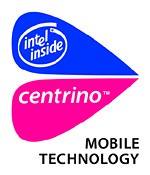
|
Home
of Wireless Applications |

|
Daily Newsletter
|
 |
Week in Review: 12th to 18th January, 2004
Introduction
Many news articles will write extensive reports on what the next big
thing will be within the world of wireless. However the keener and more
astute observer will see that the next big thing in wireless is very
dependent on the customer base. Therefore this review does not tell
you what the next big thing in wireless will be but lets the reader
decide what is the most pertinent for their business.
Applications
Included is a list of the more interesting applications deployed this
week.
The Japanese toy maker Taito launched January 14 a series of new java-enabled
game titles for Vodafone live!-enabled mobile phones. The new titles
include a 3D flight simulation, mah-jongg, as well as train simulation
and action puzzle games.
Nokia, together with Electronic Arts (EA), announced that The SimsTM
Bustin' Out is in development for the N-Gage game deck. The Sims fans
will be able to create their own characters and take them anywhere,
while on the move and interacting with the mobile community.
Phones4U and Maxim are the first distribution channels for an innovative
new mobile content play that lets consumers purchase content simply
by holding a branded card to their handset.
Drivers in Putney will be the first in the country to have the opportunity of paying for their parking by mobile phone next month. The new cash-free and paper-free service is being offered by phone-parking specialists Parkmobile and is aimed at people who make regular trips to Putney in their car. Residents can register for a card online at http://www.parkmobile.com
KDDI announced on January 13th that the company has developed a system for allowing people to browse medical checkup results from mobile phones. The system was developed in collaboration with Kyorin University.
Location Based Services
The UK's telecoms regulator, Ofcom has welcomed work carried out by
the UK’s telecommunications sector in developing technology that
will help the emergency services to locate people calling the emergency
assistance number, 999 from their mobile phones.
European engineers are testing a car safety gadget that will automatically
phone emergency services, telling operators in their home language if
a vehicle has been involved in a severe accident and where to find it.
3 added a unique feature to the list of services available to customers
in several markets. The 3GEO mobile navigational system turns a customer's
handset into a perfect travel companion by allowing quick and exact
location searches.
With the use of mobile phones becoming ever more prolific, motoring
organization RAC has become the first breakdown service provider to
use mobile phone data to help locate customers following a breakdown.
Breaking down can often be a stressful experience.
WLAN
Great North Eastern Railway (GNER) claims it will be the first UK train
operator to offer passengers wireless broadband internet access on the
move.
Working with Swedish wireless data communication solutions provider
Icomera and UK reseller ISC Computers, GNER will start a three-month
free Wi-Fi trial on an East Coast Mainline train running between London
King's Cross, Aberdeen and Inverness.
The All Nippon Airways company has announced a deal to
install WiFi services on its aircraft. The Japanese airline has signed
a contract with the Seattle-based aircraft giant Boeing to use the latter’s
Connexion in-flight internet access service
Novelties
Infineon Technologies and O’Neill Europe - a provider
of high-quality sportswear and sports gear - have unveiled the result
of a joint product development project: their first ‘wearable
electronics’-product. Based on O’Neill’s specifications,
Infineon has developed a chip module suitable for integration into a
pioneering snowboard jacket
Suunto n3was introduced as the first in a new line of smart wristop
computers that combine the quality and features from Suunto with access
to timely, glanceable information provided by Microsoft’s MSN®
Direct Service.
Technology
Included is a list of the more interesting technologies announced this
week.
Following the successful launch of Oksijen SMSC in November 2003, Spacetel Benin has decided to extend its agreement with Oksijen to deploy EasyBridge, Oksijen's multi-channel mobile multimedia services platform. According to the agreement, EasyBridge will go alive in February 2004. Earlier, Oksijen had supplied SMSC, multimedia services and bulk messaging platforms for another Investcom operator Spacefon, the leading GSM operator in Ghana as well.
Siemens Mobile launched the new slinky Siemens ST60. The phone captures and sends video, has a digital camera with 4 x zoom and a brilliant 65K display for consumers who want to communicate everything instantly. The ST60 will be available across Europe from January 2004.
Sony Ericcson has confirmed that the Z1010 will hit the UK in the next few weeks. The declared target was 1st Quarter 2004. Yet it is not known for certain which operator is taking the Z1010 - my personal feeling is that Hutchison 3G will take the handset.
Marconi Corporation has signed a multi-year contract with the USA based CDMA carrier, MetroPCS to provide a turnkey solution that supports the transition from Phase I to Phase II E911 services and compliance standards. E911 is a new standard designed to help emergency services pinpoint the location of callers within mobile 'cells'.
The M341i is more lightweight with a large 262,000-colour
screen and a a camera to instantly capture those special moments and
direct access to all i-mode™ services.
Cambridge Silicon Radio (CSR) has announced that its BlueCore Bluetooth
silicon has been selected by Navman, a world leader in mobile GPS navigation,
for its Navman GPS 4400 in-vehicle system.
General Interest
Included is a list of events that treat issues such as end user perception
of developments with wireless technology.
Tests on several of the world's most popular second-generation mobile
phone models revealed no health hazards, with radiation levels recorded
well below agreed limits, according to data published by a Finnish agency.
Some major employers are banning camera phones on the job amid growing
fears the high-tech gadgets pose serious threats to workers' privacy
and company secrets.
New technology which can pinpoint the location of mobile telephones
could infringe personal privacy, warn civil liberties groups.
The mobile industry in early 2003 continued to face tough market conditions:
slow economic growth, the war in Iraq, which made investors jittery,
and the SARS virus all compounded the already challenging task for the
telecoms sector of nurturing growth in a market where traditional voice
services had become increasingly competitive.
|
Copyright
2004 © Vovida Research, All rights reserved. |